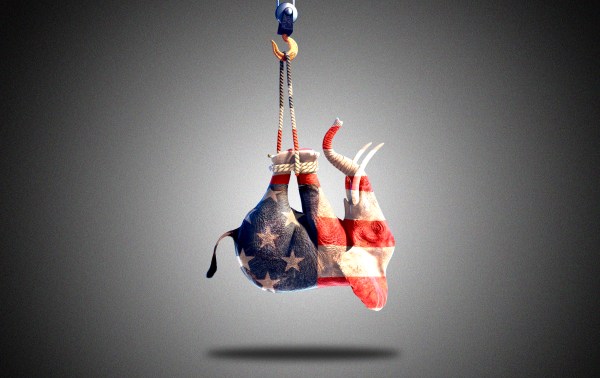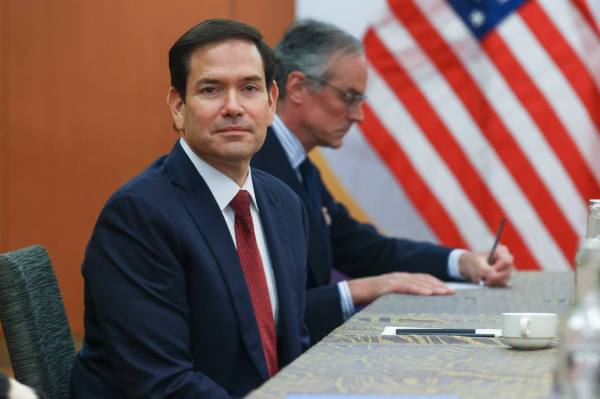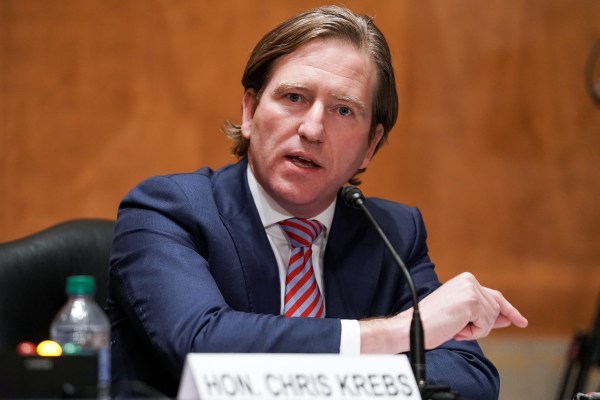Turn any article into a podcast. Upgrade now to start listening.
Premium Members can share articles with friends & family to bypass the paywall.
Take a hypothetical walk with me about 18 months into the future to November 3, 2026. Americans (well, likely less than half of the eligible voting population) have just voted in a hard-fought midterm election to determine which party will control the House of Representatives. Despite economic uncertainty and the expectation that the incumbent president’s party typically takes a hit in a midterm, the outcome between Democrats and Republicans is still too close to call.
We’re all waiting on California to finish tabulating a handful of its congressional races before we know whether President Donald Trump will have another two years of a pliant Republican House or if Democrats will be back in control. If it’s the latter, congressional investigations, a stymied legislative agenda, and even another impeachment are all on the table for the remainder of Trump’s term.
With the current Republican majority at just a three-seat margin, this scenario is well within the realm of possibility. According to The Cook Political Report, five Republican-held congressional seats in California have a partisan voter index with just a 2- or 1-point advantage for the GOP. California, too, is notoriously slow at counting votes and declaring winners thanks to its expansive vote-by-mail voting practices.
It’s not hard to imagine that as America waits for California to count its votes, Trump himself enters the fray to cast doubt on any outcome that allows Democrats to win back control of the House. Republican-run Florida had its results on election night, after all, so what Gov. Gavin Newsom and the Democrats are doing in California is automatically suspicious, part of a plot to steal the House elections and shackle the duly elected president! What tools could the Trump administration use to, um, stop the steal? Lawsuits, the Department of Justice, the Insurrection Act? Is it all on the table?
This is the “nightmare scenario” posited by Stephen Richer, the former elected recorder for Maricopa County, Arizona. In a recent interview with me, Richer said the House majority hinging on a couple of elections in California might all of the sudden prompt a deluge of action.
“I could and can imagine that that would launch an investigation into the California secretary [of state], various election officials, L.A. County's election director, so on, and so forth,” Richer told me. “California allows ballots to just be postmarked on Election Day. California has some competitive U.S. House races, and of course, you know, California is the bogeyman.”
And Richer would know. The Republican was elected in 2020 to a position that put him in charge of everything from voter registration to tabulating mail-in results in Maricopa. But upon taking office he found himself having to defend the previous election as Trump allies demanded recounts and audits. His refusal to bow to conspiracy theories about the 2020 election in Arizona earned him the opprobrium of MAGA world, and as a result, last year Richer lost the Republican primary for Maricopa County recorder.
We’re at this point in early 2025, pondering how populist Republicans might undermine the legitimacy of 2026 as they did in 2020, thanks in large part to Trump himself. He still seems unable to let go of his hang-ups about losing that election more than four years ago. A case in point is a one-two punch of executive orders signed by the president in the last few weeks, which have been lost in the reigning chaos of Trump’s tariff actions and the economic fallout.
The first, issued on March 25, would represent a significant federal incursion into how state and local governments conduct federal elections. Under the premise that Trump’s administration is seeking to enforce the limited number of existing federal election laws, the order as written seeks to throw out mail-in ballots received after Election Day even if they otherwise comply with state laws about postmarking; ban vote-tally machines that use bar codes and QR codes (which a large majority of jurisdictions currently employ); and require the federal departments of Homeland Security and Government Efficiency to “review each State’s publicly available voter registration list and available records concerning voter list maintenance activities.”
The second order came last week and targeted Christopher Krebs, the first and former director of the federal agency responsible for ensuring cybersecurity over all areas of government. Krebs, a Republican, was appointed by Trump to head the new Cybersecurity and Infrastructure Security Agency (CISA) in November 2018. Under his leadership, the agency provided pushback via official webpages to online rumors and conspiracy theories on everything from Covid-19 to election fraud. Two years and a day after his appointment, Trump fired him after Krebs stated publicly that there was no evidence of fraud in the 2020 election.
“The recent statement by Chris Krebs on the security of the 2020 Election was highly inaccurate,” Trump tweeted at the time.
More than four years later, Trump’s executive order appears to continue where he left off with Krebs, calling him a “significant bad-faith actor who weaponized and abused his Government authority.” The order also calls on multiple high-level officials, including the attorney general and the secretary of homeland security to “review” Krebs’s activity while the head of CISA, including whether Krebs improperly disseminated classified information. The executive order does not offer evidence to suggest Krebs acted improperly along these lines.
“Nobody is even pretending that it’s about anything other than he said that the 2020 election wasn’t stolen and that it was safe and secure,” said Richer, who knows Krebs personally.
But if we’re looking for canaries in the coal mine for election chicanery on the part of the Trump administration, these orders fit the bill. They signal a willingness for the administration to get involved in the nitty-gritty of elections and target government officials who threaten to stand in their way.







Please note that we at The Dispatch hold ourselves, our work, and our commenters to a higher standard than other places on the internet. We welcome comments that foster genuine debate or discussion—including comments critical of us or our work—but responses that include ad hominem attacks on fellow Dispatch members or are intended to stoke fear and anger may be moderated.
With your membership, you only have the ability to comment on The Morning Dispatch articles. Consider upgrading to join the conversation everywhere.